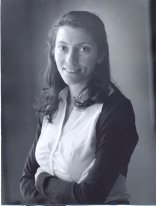Irina Shevtsova facts for kids
Quick facts for kids
Irina Shevtsova
|
|
|---|---|
 |
|
| Born | 18 February 1983 Mineralnye Vody, Russian SFSR, Soviet Union
|
| Alma mater | Moscow State University (2004) |
| Scientific career | |
| Fields | Mathematics |
| Institutions | MSU CMC |
| Doctoral advisor | Viktor Korolev |
Irina Shevtsova, born in 1983, is a talented Russian mathematician. She is a Professor at Moscow State University and holds a special degree called Doctor of Science. This degree shows she has done a lot of advanced research in her field.
Contents
Her Journey in Mathematics
Education and Early Career
Irina Shevtsova studied at Moscow State University, which is a very famous school. She graduated in 2004 from the Faculty of Computational Mathematics and Cybernetics (MSU CMC).
After finishing her studies, she started working at Moscow State University in 2006. She has been teaching and doing research there ever since.
Earning Her Doctor of Science Degree
In 2013, Irina Shevtsova achieved a major goal. She earned her Doctor of Physical and Mathematical Sciences degree. To do this, she had to write a very detailed research paper, called a thesis.
Her thesis was about making math calculations more accurate. It focused on how to improve the way we estimate things in probability theory.
What She Researches
Understanding Probability
Irina Shevtsova has written two books and more than 70 scientific articles. Her main area of research is probability theory. This part of mathematics helps us understand how likely events are to happen.
She often studies something called the central limit theorem. This theorem is a big idea in probability. It helps scientists understand how the average of many random events tends to behave.
Making Math More Precise
A lot of her work focuses on making mathematical predictions more exact. She looks at how quickly certain math calculations get close to the right answer. This is called the rate of convergence.
She also studies special numbers, called constants, that appear in these calculations. Her goal is to find better ways to estimate these constants. This helps make the math even more accurate.
The Berry-Esseen Theorem
One important part of her research involves the Berry-Esseen theorem. This theorem helps measure how close a sum of random numbers is to a normal distribution. A normal distribution is a common pattern seen in many natural events.
Irina Shevtsova has improved the way we understand this theorem. She has found better ways to estimate the numbers involved, making the predictions more precise.

